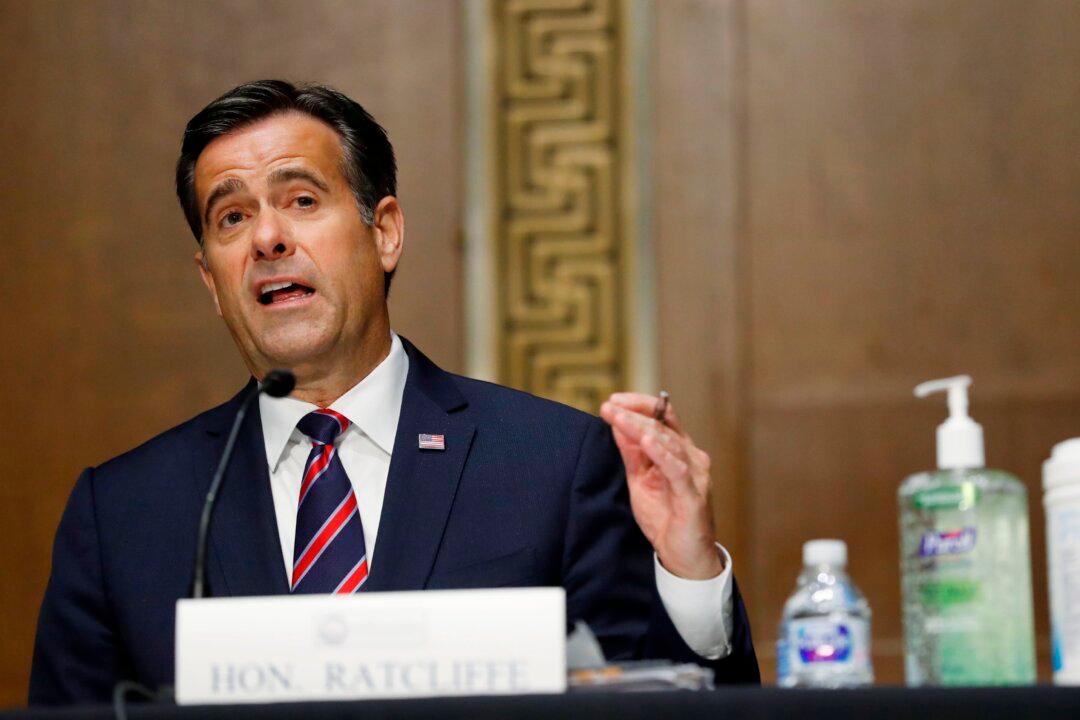The biggest foreign threat to election security in the United States is the Chinese Communist Party (CCP), according to Director of National Intelligence John Ratcliffe.
U.S. intelligence officials have recently warned about Beijing’s capability to interfere in the election, during hearings with the Senate Intelligence Committee. Last year, a number of government agencies identified Russia, China, and Iran as actors seeking to interfere in the voting process by influencing voter perceptions.





